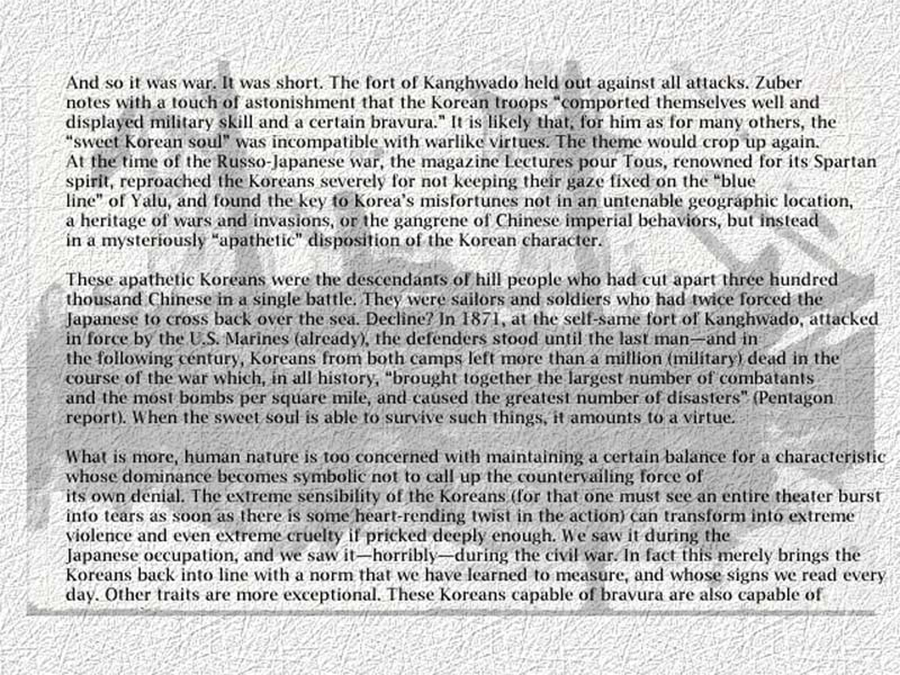COREENNES_KORTRIG STACK009

- Id : 800
- Catégorie : PHOTO
- Séquence : Coréennes_Kortrig
- Card : COREENNES_KORTRIG STACK009
Navigation :
Médias :
No clipNo sound
Text :
And so it was war. It was short. The fort of Kanghwado held out against all attacks. Zuber
notes with a touch of astonishment that the Korean troops "comported themselves well and
displayed military skill and a certain bravura." It is likely that, for him as for many others, the
sweet Korean soul" was incompatible with warlike virtues. The theme would crop up again.
At the time of the Russo-Japanese war, the magazine Lectures pour Tous, renowned for its Spartan
spirit, reproached the Koreans severely for not keeping their gaze fixed on the "blue
line" of Yalu, and found the key to Korea's misfortunes not in an untenable geographic location,
a heritage of wars and invasions, or the gangrene of Chinese imperial behaviors, but instead
in a mysteriously "apathetic" disposition of the Korean character.
These apathetic Koreans were the descendants of hill people who had cut apart three hundred
thousand Chinese in a single battle. They were sailors and soldiers who had twice forced the
Japanese to cross back over the sea. Decline? In 1871, at the self-same fort of Kanghwado, attacked
in force by the U.S. Marines (already), the defenders stood until the last man--and in
the following century, Koreans from both camps left more than a million (military) dead in the
course of the war which, in all history, "brought together the largest number of combatants
and the most bombs per square mile, and caused the greatest number of disasters" (Pentagon
report). When the sweet soul is able to survive such things. it amounts to a virtue
What is more, human nature is too concerned with maintaining a certain balance for a characteristic
whose dominance becomes symbolic not to call up the countervailing force of
its own denial. The extreme sensibility of the Koreans (for that one must see an entire theater burst
into tears as soon as there is some heart-rending twist in the action) can transform into extreme
violence and even extreme cruelty it pricked deeply enough. We saw it during the
Japanese occupation, and we saw it-horribly during the civil war. In fact this merely brings the
Koreans back into line with a norm that we have learned to measure, and whose signs we read every
day. Other traits are more exceptional. These Koreans capable of bravura are also capable of